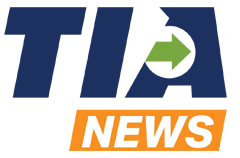A Conversation with Daniel Ilg, Freight Leadership Lab Instructor

Daniel Ilg, President of ILG Logistics and instructor for the Freight Leadership Lab, shares his insights on what it takes to lead well in the freight brokerage industry.
What does leadership mean to you?
It’s funny, I had a professor in college who taught a leadership class, and every day he’d bring in this big fake diamond and start class the same way: “Leadership is like a diamond.” At the time, as an 18 or 19-year-old, I thought it was silly. But now, being in it and doing it for so long, I recognize what he was talking about. It has many facets, right? There are different ways to look at it. The way you lead a team of two or three carrier reps versus a team of 30 people, it’s different.
For me, leadership is about leading well and being your authentic self. The hardest thing I had to learn was that there are going to be people who don’t like me, whether that’s personality or the things I do or say. But at the end of the day, I have to lead from a place of authenticity. If I’m not doing that, then I’m being dishonest to myself and I’m being dishonest to my people. That’s not fair for either party. I’d rather they’re not the biggest fan of me, but I’m being truthful with them all the time, than trying to get them to sway towards what I want because it helps me. I want it to be a mutually beneficial relationship.
How does having great leaders on staff help drive organizational goals forward? And conversely, how does poor leadership restrict growth?
Having good leadership on your team – especially people leading underneath you – is about staying on the same page, making sure they’re on the same page as you, and ensuring we’re all running after the same goal together. There’s not a one-size-fits-all approach. Everybody’s different.
One of the things I do all the time is give my “why” behind everything, whether it’s a change, something new, or even a reprimand. You’re going to understand the why behind it. There’s never just going to be a reprimand with no understanding of what mistake took place. Having good leaders means helping them understand that “why” so they can lead from that foundation rather than just focusing on hitting bottom-line dollars. Yes, dollars matter in what we do, but we are a people organization. Our people matter, and they need to be led well and cared for to get to that bottom dollar.
On the flip side, with poor leadership, you might have the best people in the world tendering freight and talking to customers every day, but if they’re getting harassed and yelled at on a daily basis, that sucks for culture. It’s not your title that determines your ability to lead, it’s you leading that determines your ability to lead.
How should someone prepare for the Freight Leadership Lab course?
Just know that you don’t know enough. Put yourself in a place where you can recognize that you don’t have all the answers. That’s one of the things I love about our industry; I learn every day. New information, new processes, new issues pop up, and you take that applicational understanding from past situations and apply it.
Be open to the possibility that you might not have it right. Even in writing the curriculum, I’m relearning things I had forgotten or reading something new with a different point of view. There’s a good amount of books and resources out there on leadership, but the biggest thing is application. Can you apply it to what you’re doing every day, where your responsibilities lay, where your people are at?
For prep, read some books, listen to some podcasts. I’m a big fan of Simon Sinek. (His book) Start With Why is really helpful to get you in the mindset of what it looks like to lead well from a place that isn’t always driven by a bottom dollar, but from how you help the most people at the same time.
Tell us about your module on problem-solving and decision-making.
Problem-solving and decision-making; that’s what we do on a daily basis. Whether you’re a carrier rep booking trucks, managing those reps, a business development manager, an account manager, or running the entire company, problem-solving and decision-making is what we do as freight brokers every single day. That is our role in the supply chain.
When you’re making decisions at the carrier rep level on one specific shipment, it’s easier because you’re not really thinking about the larger realm of consequences. As you move up in the organization, the decisions you make have wide-sweeping consequences. There are going to be people who disagree with the decision, but if you’re leading an organization, that’s your responsibility.
I remember when I was a teenager working for my dad—he started the company back in ’07. I asked him what’s the hardest part about running your own business, and his response has stuck with me for almost 20 years: “There are six people out there relying on me to make the right decision so they can pay their mortgage this month.”
If you start thinking about decisions in that aspect, it changes the gravity of those decisions. I want the weight—my shoulders are broad, I’m ready for it. I think there are things we can learn, ways to understand people—interpersonal relationships, communication styles. All of these things matter, and they get ignored oftentimes.
What other modules are you excited about?
Two things. One, Alex Fritz is doing “How to Make Money in Brokerage.” I think it’s so important. Operations is on the operations side, sales on the sales side, accounting in accounting. Being able to understand it from 30,000 feet. What does back office look like if you’re in operations? What does operations look like if you’re in accounting? That’s really important for management at a brokerage to understand because that’s what pays the bills. The more information you have, the better decisions you can make on a day-to-day basis.
The other one I’m really excited for is David (Abell) and Mike (Riccio)’s module on the ethics of leadership. The freight industry is full of fraud right now, and fraud is, very bluntly, unethical. Talking about what we do in freight and how we can set ourselves apart as freight brokers, as members of TIA, I think it’s only going to benefit the whole company.
Here’s an example: You get a load and two quick options fall within your parameters. You book the first one, then five minutes later you get another call that’s $100 cheaper. What do you do? Do you want to make the extra $100 and cut the first carrier you already promised the load to? No. Your name is worth something. The way you conduct business. If that was good enough at the front end, you don’t get to backtrack on the backside. These are things that need to be talked about in a very public forum that aren’t typically discussed.
Who is the ideal candidate for this course?
I think it falls into three spots. First, that younger person who you see has the potential – they’re friendly, can adapt to situations, don’t lose their cool, aren’t afraid of conflict. They can manage through it.
Second, that great operator or sales rep you just pushed into a manager position because they were great at their last job. They need to now lead people and get them up to that spot where they’re at. Giving them tools, resources, and a community of like-minded leaders is going to be really beneficial.
The last one is smaller shop owners. We get lost in it, right? You’re grinding for years just making it work, you’re the head ops guy, the head sales guy, doing the accounting, doing month-end. In the midst of doing all that, you forget you have five people below you who need somebody to tell them where to go and how to get there. No one taught you how to lead the group you’re leading. Take time to develop yourself to continue to find those blind spots. The more blind spots we find as leaders, the better off we are for the long term, and the better off our people are because we’re working on ourselves, not just them.
Any final thoughts on the value of the program?
One of the bigger benefits is getting admission to the TIA Capital Ideas Conference. I still remember my first one six years ago in 2019. My eyes just opened wide to what was possible inside of freight and brokerage, understanding there were tech vendors, people going through the same issues you were. Now it’s cool to be able to help people in the way others helped me, and that’s all directly tied back to Capital Ideas.
The best part about that conference is meeting new people who you don’t have to explain four different ways what a freight broker does; they understand it. There’s that known base of information. I think there’s a benefit there that shouldn’t be overlooked.

